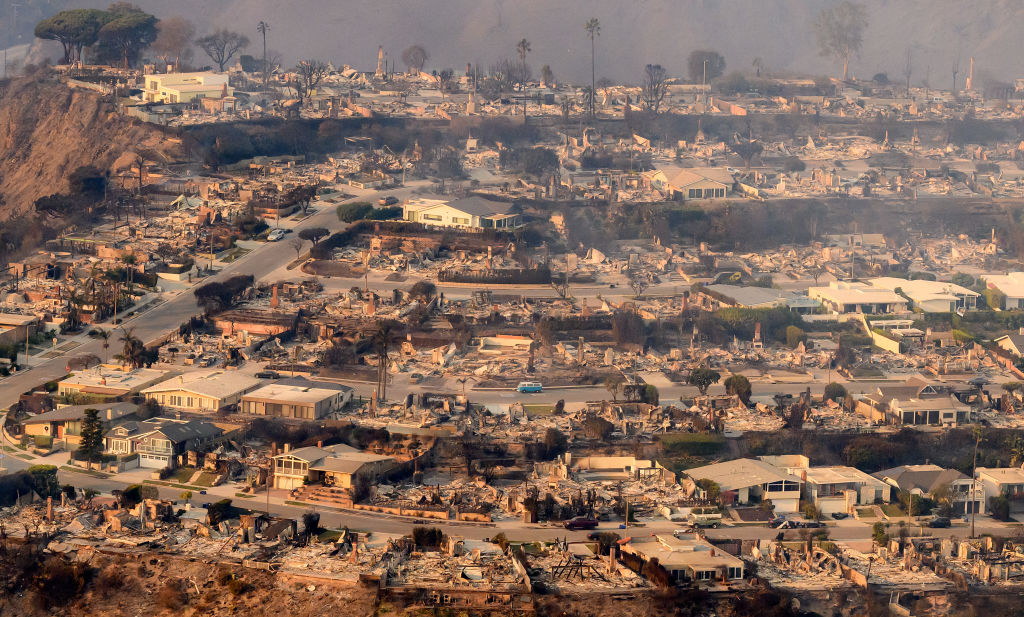Understanding the Impact of California Wildfires on Individuals and Communities
The recent spate of wildfires in California has left a significant mark on the lives of many residents. As the flames consume homes and forests alike, they bring an overwhelming sense of loss, uncertainty, and displacement. One poignant reflection on this situation comes from Judy Keyes, an employment partner at Davis Wright Tremaine, who recently lost her home to these devastating fires. Her comments shed light on the human aspect of this disaster, emphasizing the collective desire to help those affected while grappling with feelings of helplessness amidst the dire circumstances.
The Personal Toll of Wildfires
Judy Keyes’ story is emblematic of the broader experience faced by many individuals caught in the path of these fires. After her home was destroyed, she found temporary refuge with the family of a colleague and eventually moved to an Airbnb, only to see that location also fall victim to the flames. This sequence of events illustrates the intense upheaval that fires can cause, not just to physical structures but to personal lives as well. The psychological impact of such destruction is profound; losing a home means losing a sense of security and belonging.
Community Response and Support Systems
In the face of such tragedy, communities often rally to provide support for those affected. Keyes noted the offers of assistance she received, although she expressed uncertainty about how exactly that help could be mobilized effectively. This situation highlights a common feeling among those affected by disasters; while the desire to help is strong, the specifics of providing meaningful support can be unclear. Organizations and local governments often step in, setting up resources and relief efforts to ease the burden on victims, but personal connections remain vital during such challenging times.
Finding Value Amidst the Ruins
As she contemplates the future, Judy Keyes expresses a determination to return to her home and sift through the ashes to identify anything of worth that may have survived. This highlights a broader theme among wildfire survivors: the desire to reclaim the remnants of their past. The act of returning to the site of one’s former home can serve as a pivotal moment in the healing process, allowing individuals to confront their grief while also searching for hope amid destruction. It underscores the human resilience that often emerges in the aftermath of catastrophe.
The Importance of Workplace Support
Keyes’ situation also brings to attention the crucial role workplaces play in supporting employees during difficult times. Davis Wright Tremaine’s decision to allow Keyes to use their office address for her financial matters signifies a commitment to employee well-being that goes beyond just professional responsibilities. Such support systems are essential in helping individuals maintain their daily lives, even when personal circumstances are dire. Companies that foster a culture of empathy and understanding often aid in the smooth transition for their employees during crises.
The Ongoing Threat of California Wildfires
Wildfires have become a recurring issue in California, exacerbated by climate change and increasing urban development in vulnerable areas. As such fires continue to threaten communities, the state grapples with the need for better preparedness and response strategies. Investing in prevention, creating effective evacuation plans, and fostering community resilience are essential steps toward mitigating the impact of future wildfires. Statewide initiatives and local strategies need to be aligned to ensure that those at risk receive the attention and resources they need.
Conclusion
The devastation caused by wildfires in California serves as a sobering reminder of the fragility of our homes and communities. Judy Keyes’ experience highlights the personal toll such disasters take, interwoven with themes of loss, community support, and resilience. As we reflect on these stories of struggle and endurance, it becomes clear that meaningful action, both from individuals and organizations, is essential in rebuilding lives and fortifying communities against future disasters. Support systems, whether from workplaces, local governments, or community organizations, play a critical role in fostering resilience and healing during these challenging times.
FAQs
What should I do if I am affected by wildfires?
If you find yourself affected by wildfires, it is essential to prioritize your safety and well-being. Follow evacuation orders, seek temporary shelter, and connect with local disaster relief agencies for assistance.
How can I help wildfire victims?
What are some long-term solutions to mitigate wildfire risks?
Long-term solutions include investing in fire-prevention infrastructure, implementing more effective land management practices, and advocating for policies addressing climate change and urban development in fire-prone areas.
What resources are available for emotional support after a wildfire?
Many communities offer mental health resources, support groups, and counseling services for individuals affected by natural disasters. Local health departments and non-profit organizations are good starting points to find necessary emotional support.
How can companies support employees affected by natural disasters?
Companies can support employees by providing flexible work arrangements, offering financial assistance, and allowing employees to use company resources to navigate the aftermath of a disaster. Creating a culture of empathy and support can significantly aid recovery efforts.

